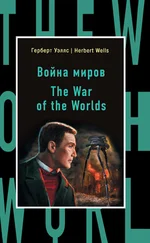Герберт Уэллс - War and the Future - Italy, France and Britain at War
Здесь есть возможность читать онлайн «Герберт Уэллс - War and the Future - Italy, France and Britain at War» — ознакомительный отрывок электронной книги совершенно бесплатно, а после прочтения отрывка купить полную версию. В некоторых случаях можно слушать аудио, скачать через торрент в формате fb2 и присутствует краткое содержание. Жанр: История, foreign_prose, prose_military, на английском языке. Описание произведения, (предисловие) а так же отзывы посетителей доступны на портале библиотеки ЛибКат.
- Название:War and the Future: Italy, France and Britain at War
- Автор:
- Жанр:
- Год:неизвестен
- ISBN:нет данных
- Рейтинг книги:4 / 5. Голосов: 1
-
Избранное:Добавить в избранное
- Отзывы:
-
Ваша оценка:
- 80
- 1
- 2
- 3
- 4
- 5
War and the Future: Italy, France and Britain at War: краткое содержание, описание и аннотация
Предлагаем к чтению аннотацию, описание, краткое содержание или предисловие (зависит от того, что написал сам автор книги «War and the Future: Italy, France and Britain at War»). Если вы не нашли необходимую информацию о книге — напишите в комментариях, мы постараемся отыскать её.
War and the Future: Italy, France and Britain at War — читать онлайн ознакомительный отрывок
Ниже представлен текст книги, разбитый по страницам. Система сохранения места последней прочитанной страницы, позволяет с удобством читать онлайн бесплатно книгу «War and the Future: Italy, France and Britain at War», без необходимости каждый раз заново искать на чём Вы остановились. Поставьте закладку, и сможете в любой момент перейти на страницу, на которой закончили чтение.
Интервал:
Закладка:
Among these mountains avalanches are frequent; and they come down regardless of human strategy. In many cases the trenches cross avalanche tracks; they and the men in them are periodically swept away and periodically replaced. They are positions that must be held; if the Italians will not face such sacrifices, the Austrians will. Avalanches and frostbite have slain and disabled their thousands; they have accounted perhaps for as many Italians in this austere and giddy campaign as the Austrians…
3
It seems to be part of the stern resolve of Fate that this, the greatest of wars, shall be the least glorious; it is manifestly being decided not by victories but by blunders. It is indeed a history of colossal stupidities. Among the most decisive of these blunders, second only perhaps of the blunder of the Verdun attack and far outshining the wild raid of the British towards Bagdad, was the blunder of the Trentino offensive. It does not need the equipment of a military expert, it demands only quite ordinary knowledge and average intelligence, to realise the folly of that Austrian adventure. There is some justification for a claim that the decisive battle of the war was fought upon the soil of Italy. There is still more justification for saying that it might have been.
There was only one good point about the Austrian thrust. No one could have foretold it. And it did so completely surprise the Italians as to catch them without any prepared line of positions in the rear. On the very eve of the big Russian offensive, the Austrians thrust eighteen divisions hard at the Trentino frontier. The Italian posts were then in Austrian territory; they held on the left wing and the right, but they were driven by the sheer weight of men and guns in the centre; they lost guns and prisoners because of the difficulty of mountain retreats to which I have alluded, and the Austrians pouring through reached not indeed the plain of Venetia, but to the upland valleys immediately above it, to Asiago and Arsiero. They probably saw the Venetian plain through gaps in the hills, but they were still separated from it even at Arsiero by what are mountains to an English eye, mountains as high as Snowdon. But the Italians of such beautiful old places and Vicenza, Marostica, and Bassano could watch the Austrian shells bursting on the last line of hills above the plain, and I have no doubt they felt extremely uneasy.
As one motors through these ripe and beautiful towns and through the rich valleys that link them – it is a smiling land abounding in old castles and villas, Vicenza is a rich museum of Palladio’s architecture and Bassano is full of irreplaceable painted buildings – one feels that the things was a narrow escape, but from the military point of view it was merely an insane escapade. The Austrians had behind them – and some way behind them – one little strangulated railway and no good pass road; their right was held at Pasubio, their left was similarly bent back. In front of them was between twice and three times their number of first class troops, with an unlimited equipment. If they had surmounted that last mountain crest they would have come down to almost certain destruction in the plain. They could never have got back. For a time it was said that General Cadorna considered that possibility. From the point of view of purely military considerations, the Trentino offensive should perhaps have ended in the capitulation of Vicenza.
I will confess I am glad it did not do so. This tour of the fronts has made me very sad and weary with a succession of ruins. I can bear no more ruins unless they are the ruins of Dusseldorf, Cologne, Berlin, or suchlike modern German city. Anxious as I am to be a systematic Philistine, to express my preference for Marinetti over the Florentine British and generally to antagonise aesthetic prigs, I rejoiced over that sunlit land as one might rejoice over a child saved from beasts.
On the hills beyond Schio I walked out through the embrasure of a big gun in a rock gallery, and saw the highest points upon the hillside to which the Austrian infantry clambered in their futile last attacks. Below me were the ruins of Arsiero and Velo d’Astico recovered, and across the broad valley rose Monte Cimone with the Italian trenches upon its crest and the Austrians a little below to the north. A very considerable bombardment was going on and it reverberated finely. (It is only among mountains that one hears anything that one can call the thunder of guns. The heaviest bombardments I heard in France sounded merely like Brock’s benefit on a much large scale, and disappointed me extremely.) As I sat and listened to the uproar and watched the shells burst on Cimone and far away up the valley over Castelletto above Pedescala, Captain Pirelli pointed out the position of the Austrian frontier. I doubt if the English people realise that the utmost depth to which this great Trentino offensive, which exhausted Austria, wasted the flower of the Hungarian army and led directly to the Galician disasters and the intervention of Rumania, penetrated into Italian territory was about six miles.
III. BEHIND THE FRONT
1
I have a peculiar affection for Verona and certain things in Verona. Italians must forgive us English this little streak of impertinent proprietorship in the beautiful things of their abundant land. It is quite open to them to revenge themselves by professing a tenderness for Liverpool or Leeds. It was, for instance, with a peculiar and personal indignation that I saw where an Austrian air bomb had killed five-and-thirty people in the Piazza Erbe. Somehow in that jolly old place, a place that have very much of the quality of a very pretty and cheerful old woman, it seemed exceptionally an outrage. And I made a special pilgrimage to see how it was with that monument of Can Grande, the equestrian Scaliger with the sidelong grin, for whom I confess a ridiculous admiration. Can Grande, I rejoice to say, has retired into a case of brickwork, surmounted by a steep roof of thick iron plates; no aeroplane exists to carry bombs enough to smash that covering; there he will smile securely in the darkness until peace comes again.
All over Venetia the Austrian seaplanes are making the same sort of idiot raid on lighted places that the Zeppelins have been making over England. These raids do no effective military work. What conceivable military advantage can there be in dropping bombs into a marketing crowd? It is a sort of anti-Teutonic propaganda by the Central Powers to which they seem to have been incited by their own evil genius. It is as if they could convince us that there is an essential malignity in Germans, that until the German powers are stamped down into the mud they will continue to do evil things. All of the Allies have borne the thrusting and boasting of Germany with exemplary patience for half a century; England gave her Heligoland and stood out of the way of her colonial expansion, Italy was a happy hunting ground for her business enterprise, France had come near resignation on the score of Alsace-Lorraine. And then over and above the great outrage of the war come these incessant mean-spirited atrocities. A great and simple wickedness it is possible to forgive; the war itself, had it been fought greatly by Austria and Germany, would have made no such deep and enduring breach as these silly, futile assassinations have down between the Austro-Germans and the rest of the civilised world. One great misdeed is a thing understandable and forgivable; what grows upon the consciousness of the world is the persuasion that here we fight not a national sin but a national insanity; that we dare not leave the German the power to attack other nations any more for ever…
Venice has suffered particularly from this ape-like impulse to hurt and terrorise enemy non-combatants. Venice has indeed suffered from this war far more than any other town in Italy. Her trade has largely ceased; she has no visitors. I woke up on my way to Udine and found my train at Venice with an hour to spare; after much examining and stamping of my passport I was allowed outside the station wicket to get coffee in the refreshment room and a glimpse of a very sad and silent Grand Canal. There was nothing doing; a black despondent remnant of the old crowd of gondolas browsed dreamily among against the quay to stare at me the better. The empty palaces seemed to be sleeping in the morning sunshine because it was not worth while to wake up…
Читать дальшеИнтервал:
Закладка:
Похожие книги на «War and the Future: Italy, France and Britain at War»
Представляем Вашему вниманию похожие книги на «War and the Future: Italy, France and Britain at War» списком для выбора. Мы отобрали схожую по названию и смыслу литературу в надежде предоставить читателям больше вариантов отыскать новые, интересные, ещё непрочитанные произведения.
Обсуждение, отзывы о книге «War and the Future: Italy, France and Britain at War» и просто собственные мнения читателей. Оставьте ваши комментарии, напишите, что Вы думаете о произведении, его смысле или главных героях. Укажите что конкретно понравилось, а что нет, и почему Вы так считаете.

![Герберт Уэллс - The War of the Worlds [С англо-русским словарем]](/books/26611/gerbert-uells-the-war-of-the-worlds-s-anglo-thumb.webp)










